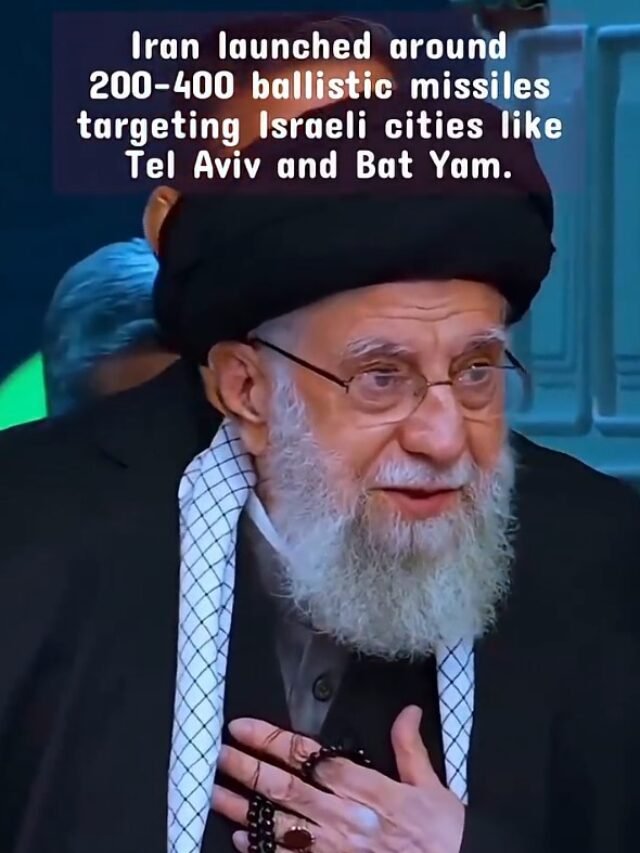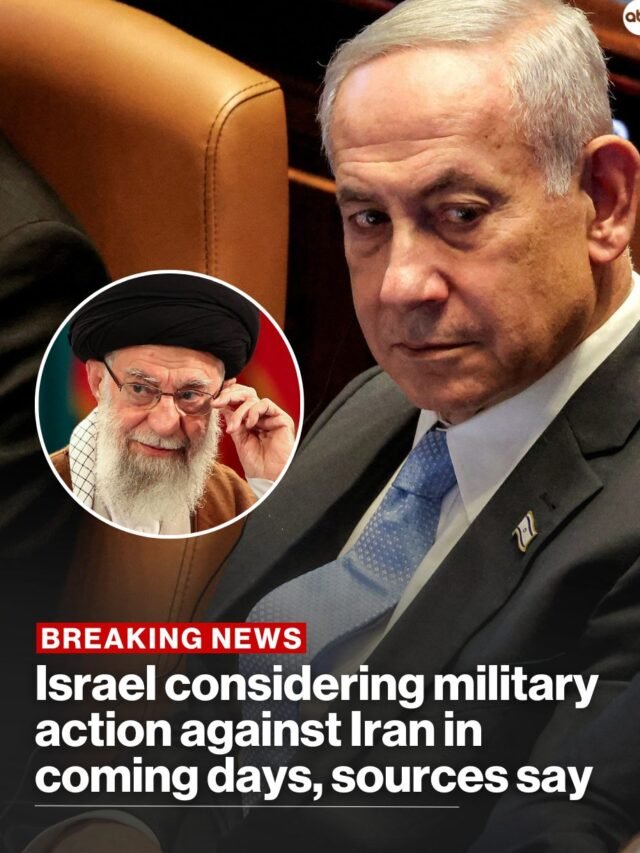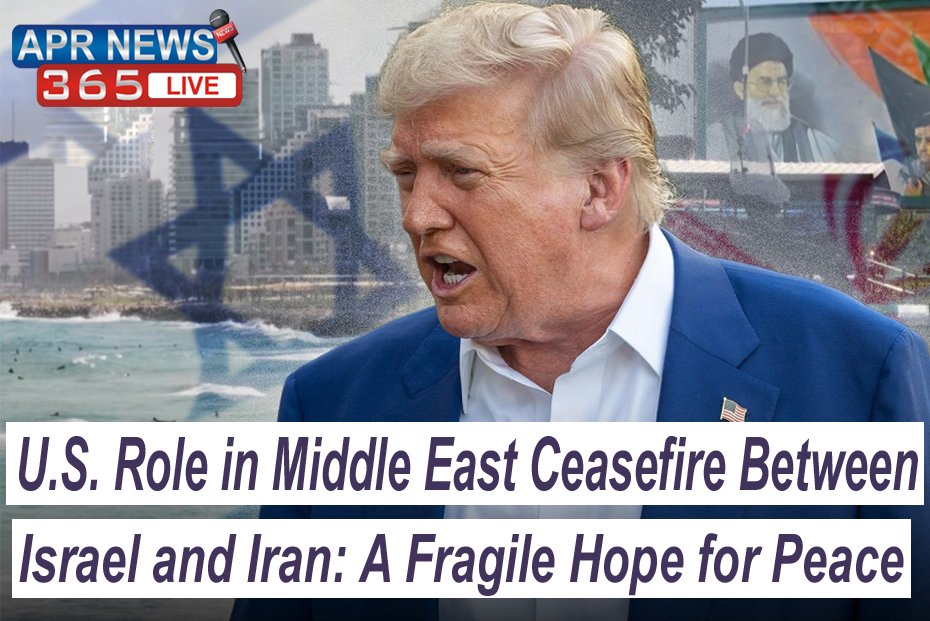U.S. Role in Middle East Ceasefire Between Israel and Iran: A Fragile Hope for Peace
Date: June 25, 2025
Author: PRM News 365
Latest Update
The recent announcement of a ceasefire between Israel and Iran has once again placed the United States in the global spotlight.
Former President Donald Trump, in a bold diplomatic move, declared a temporary halt to hostilities between the two long-time adversaries. However, early signs indicate that this fragile truce may already be under strain.

Ceasefire Announced but Violations Reported
According to White House sources, the ceasefire was brokered after intense back-channel discussions and diplomatic pressure from Washington. Yet, within days of the announcement, both Israeli and Iranian officials have accused each other of violating the terms of the agreement.
Missile alerts and drone activities have been reported near key border zones, raising questions about the sustainability of the ceasefire. Despite these tensions, the U.S. State Department has confirmed that negotiations with Iranian representatives will resume next week in Geneva.
U.S. Airstrikes Had Limited Impact on Iran’s Nuclear Program
Prior to the ceasefire, the U.S. launched a series of targeted airstrikes aimed at crippling Iran’s nuclear facilities. While initial reports hailed the airstrikes as a strategic win, newer intelligence assessments paint a different picture. Experts now suggest the attacks caused only a short-term disruption in Iran’s nuclear advancements. Key infrastructure, including centrifuges, was either safeguarded in advance or rapidly reconstructed following the strikes.
Trump’s Diplomatic Gamble (Expanded to ~200 Words)
The announcement of the ceasefire by former President Donald Trump has sparked a wide range of reactions both at home and abroad. For his supporters, the move was seen as a significant diplomatic breakthrough—a bold step toward reducing hostilities in a region long plagued by violence. They commended Trump for initiating dialogue and taking leadership at a time when tensions were dangerously high. However, critics were quick to point out that without enforceable conditions and long-term planning, the ceasefire may prove to be short-lived and ineffective.

Speaking during a media briefing, Trump stressed that sustainable peace can only be achieved if both Israel and Iran choose diplomacy over conflict. He reiterated that the United States stands ready to act as a facilitator in the process, helping both sides move toward a more stable future. His remarks have reignited intense debate over America’s broader strategic role in the Middle East.
Many experts argue that while the ceasefire is a step forward, it remains fragile and vulnerable to collapse if not followed by meaningful negotiations. The coming weeks will test the commitment of all parties involved. Whether this diplomatic gamble results in lasting peace or slips into another missed opportunity will largely depend on sustained efforts from all sides—especially the U.S.
The Road Ahead
With high-stakes peace talks just around the corner, global attention has turned toward the delicate process unfolding in the Middle East. The recently declared ceasefire between Israel and Iran has created a rare, critical opportunity for diplomacy. As tensions ease, international observers are closely monitoring the diplomats whose next moves could define the region’s future.
International bodies, including the United Nations and humanitarian organizations, have praised the temporary halt in violence, urging both sides to keep civilian safety a

t the forefront of their agendas. Relief agencies operating in conflict zones have stressed the need for uninterrupted humanitarian aid, medical supplies, and access to affected communities.
Despite the hopeful tone, major hurdles remain. Deep-rooted mistrust, years of hostility, and the ongoing threat of proxy conflicts pose serious risks to long-term stability. Political analysts warn that unless both nations approach the talks with genuine commitment and flexibility, this ceasefire may end up as just another brief pause in a long history of bloodshed. The United States and other global powers are expected to play a key role in guiding the process, applying pressure where needed and offering incentives to maintain progress. Whether this fragile truce turns into a meaningful peace or fades into another missed opportunity will depend on the choices made in the critical days to come.











Pingback: Matthew Schaefer Drafted #1 By Islanders – A New Era Begins (2025 NHL Draft)